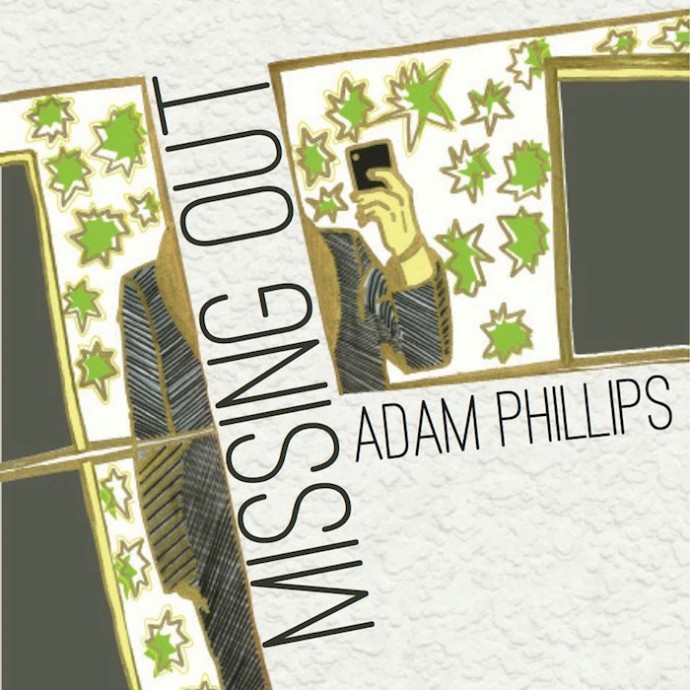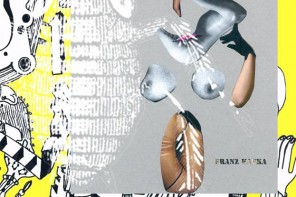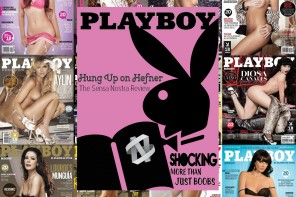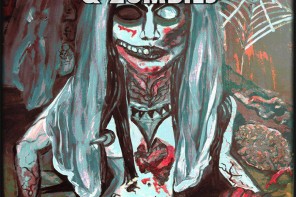Stuffication is a book about the burden of material ownership. The author, James Wallman, examines the history and coming twilight of the material age before going out in search of an alternative. After the Second World War, the western world found itself living in a time of unprecedented prosperity. In America, the average baby boomer was $10,000 better off than their parents and for the first time ever, almost everybody could realistically dream of owning almost anything they wanted. A generation found a new kind of freedom in a mountain of material wealth their predecessors could hardly have imagined. Cars, televisions, fridges, and washing machines became affordable and soon improved models were affordable too. At the same time, the idea of the welfare state allowed families and individuals to spend without worrying too much about the financial traumas of illness, unemployment, and education. As this generation slowly loses its hair, teeth and influence, the novelty of material abundance has started to wear off (along with the economic conditions that gave rise to it) and values are slowly starting to change.
To the so-called Millennials, who grew up with an abundance of “stuff”, the idea of “more stuff” isn’t quite as thrilling as it once was. Wallman has recognised a long-term alternative to material accumulation – and he’s not alone in his conclusion. Studies are now showing that young people, born into abundance, are increasingly underwhelmed by expensive products and now increasingly value experiences over possessions. Why buy an iPad to cherish for a year to two, when you could spend roughly the same amount of money on a modest holiday you will remember forever? As Wallman puts it, “memoires live longer than dreams,” and this, he tells us, is worth appreciating because experiences help us develop as human beings. But will what Wallman describes as ‘experientialism’ really set us free or will living for verbs frustrate us in ways that nouns never could?
Stuffication is not an anti-consumerism book and Wallman is not Epicurus. He has argued that social media has dramatically aided the shift from ownership to experience because we can now brand ourselves with experiences and share those experiences to achieve social status. The walls of Facebook must be decorated in holiday photos, celebrity encounters, and (for some reason) mountains of food. Evidence of experience and variety are the new certificates of personal validation. ‘I live, therefore I am, and I need my friends and followers to know all about it.’
In 2012, Adam Phillips published a collection of essays called Missing Out: In Praise of the Unlived Life. The assertion of this book is that many of us waste our limited time on planet earth by daydreaming about the lives we do not live. That each of us is haunted by the idea of the person we wish we had (or might yet) become. A superior person, who is always following us, one who has achieved success and experienced the world, but one who does not exist. This person may frustrate us forever and represent everything we never accomplished. They shadow us throughout life. Through our schools, our universities and every office we ever work in.
Many of us, Phillips argues, are terminally teased by the ghost of our own potential. An un-killable spectre that repeatedly whisks us though a magical misery tour of the education, partners, careers, and lifestyles we could never quite get our hands on. There is not too much that is new here. This feeling is as old as it universal and no amount of success seems able to remedy it. Even William Shakespeare, in his 29th sonnet, displays agitation towards the man he is not. “Desiring this man’s art, and that man’s scope” threw the bard into an “outcast state” in a poem that holds its power 400 years after its publication.
“And look upon myself and curse my fate,
Wishing me like to one more rich in hope,
Featured like him, like him with friends possess’d”
If Shakespeare felt inadequate then what hope have we, in an age when we know more about each other’s lives then ever before? The power of Phillips lies in the subtitle, In Praise of the Unlived Life. This is a book that encourages us to understand and cherish the lives we do have and could serve as highly therapeutic read for anybody suffering from the side-affects of fading ambitions. And the timing of this book could hardly be better as the lived life comes under sustained attack from digital media and the growing social super-power of explicit experimentalism.
Among others, the philosopher Slavoj Žižek (also referenced by Phillips) has suggested that since we stopped taking religion seriously, our ‘superego’, the part of our mind that, Freud suggested, urges us to be ethical, now tells us that we must be happy and make every effort possible to enjoy our lives. In his recent documentary, The Pervert’s Guide to Ideology, Zizek observes that:
“My psychoanalytic friends are telling me that typically today, patients who come to the analyst to resolve their problems feel guilty, not because of excessive pleasures, not because they indulged in pleasers which go against their sense of duty or morality. On the contrary, they feel guilty for not enjoying enough. Not being able to enjoy.”
We now increasingly seem to believe that we owe ourselves pleasure and to miss out on this pleasure is to miss out on life itself. But reality isn’t geared towards pleasure. On any given day, the lived life is contaminated with illness, ageing, death, disappointment, disillusionment, and boredom. (And who is to say the next day will be better?) Phillips argues that these harsh and tedious realties mean that harbouring our personal spectre as well as a personal debt to our own hedonism can become harrowing lifelong burdens.
This baggage can be easily exacerbated by the insidious side effects of social media. What researchers have crudely described as “Facebook envy” is a natural consequence of an online culture that evolution could never have prepared us for. A culture that encourages users to selectively edit, publish, and vaingloriously promote the scattered photogenic highlights of their personal progress. Websites like Facebook, Instagram, and Twitter have become vapid cascading catalogues of seemingly happy people doing everything within their power to associate themselves with interesting, exotic, and successful experiences. And in a climate of youth unemployment, many are also keen to publically bathe in the glow of meaningful employment; recently I have noticed an epidemic of graduate journalists posting photographs of their logo adorned desks and offices.
Do we ask ourselves why are posting and (just as importantly) ‘liking’ these images? Probably not, because if we did every other decision we made online would be a psychological minefield of envy, validation and overcompensation. What most of us know (but often fail to process) is that the pictures being painted on these braggart friendly websites are largely illusional. The mass of men and women continue to lead lives of quiet desperation and because social media users seldom want to share details of the frustrating challenges of daily life, the causal Facebook scrollers, bombarded as they are with the selected highlight, are compounded by inadequacy.
So what do we do? In an effort to impress our peers, we race to add our own fascinating images to the endless galleries of our hyper-socialized society, but naturally (and economically) this can be a lot harder for some than it is for others. Perhaps it would be healthier for all of us to apply a Reithian test to everything we considering posting. Does the post inform, educate or entertain? If so post. Alternatively, could be judged as self-promotion? If so, hold your fire. If all your friends know what the Grand Canyon or some recognisable celebrity look like, then the only purpose of a photo of you next to them is to say ‘look at me, I’m living well’. But why should we consider this as anything more then vulgar?
Like material wealth, experiential wealth can depend heavily on the size of a person’s bank balance. If you’re upper-middle class you will have a greater ability to experience more of the world than those without a disposable income and most of us know that we may never be able to post a photograph of ourselves admiring a Patagonian sunset. During a recent talk at the Royal Society of Arts, Wallman was asked if experiences had become “just another form of competition with your neighbor.” Wallman agreed, describing experientialism as “a different way of competing than with material goods.” He then argued that experiences are harder to compare because the ones that go wrong “are the best because then you get to tell that story” and that ultimately this is a good thing, presumably because getting it wrong can make us more interesting as individuals.
In a strange way Wallman’s idea is a victim of its own success. He is right in saying that experiences are vastly superior to possessions, but if our culture continues to encourage us to live in the pursuit of status and to gleefully publicise our efforts to pursue these experiences, then our collective experience of real everyday life isn’t going to get any better. The experience of not experiencing a well-lived life will inevitably deteriorate further and this is precisely what Adam Phillips is trying to warn us about. In Missing Out he describes this telling encounter:
“I remember a child telling me in a session – a child who believed as many children do, that being an adult is the is the solution to being a child – that the reason he wanted to be bigger was because he wouldn’t have to want to be bigger.”
Is this not a perfect metaphor for the rest of us? We seem to live loudly, so we don’t have to desire living prominently. When we do ‘live’ we rush to undermine the value of our common every-day existence, an existence that millions of us will never escape from. But whether one does or does not live one’s dreams, the world will continue to turn as sure as anything. The minute hand will gradually tick its way into the human heart until the gaping wound it creates is impossible to ignore. The universal sense of urgency, liberation, and reflection this feeling creates is quite possibly the true experiential equalizer.
This text review is part of Textasy, Sensa Nostra’s new text reviews section. Want to contribute?








Pingback: High on Textasy |()